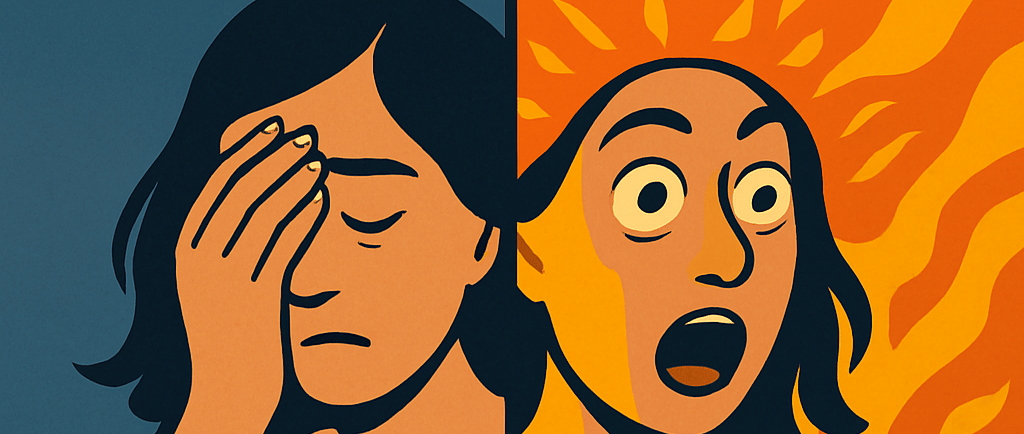Tired or Overstimulated? Know the Difference.
We live in a productivity-obsessed world. Feeling drained by midday? The fix we’re sold is usually another coffee, a power nap, or a motivational playlist. But what if the real problem isn’t tiredness—it’s overstimulation?
Kamy Charles
4/10/20251 min read


As a high-achieving professional, you’re juggling responsibilities, context switching all day, and processing constant digital input. Your calendar may be full, but so is your brain.
So what’s really going on? Let’s break it down.
Tired vs. Overstimulated: The Difference
Tired is physical. You’ve used up your body’s energy and your muscles, eyes, and mind are asking for rest.
Overstimulated is neurological. Your brain is running on overdrive—bombarded by information, notifications, noise, and stress. You're not just fatigued—you’re fried.
Key Signs You’re Overstimulated:
You can’t focus, even though you’ve technically “rested”
You feel irritated by small things
You scroll instead of sleep
You’re mentally foggy but physically restless
You’re constantly multitasking (even when you shouldn’t be)
The tricky part? Overstimulation often disguises itself as exhaustion. So instead of true rest, we scroll, doom-dive into emails, or power through—which only worsens the cycle.
How to Reset When You’re Overstimulated:
1. Step into silence Even 5–10 minutes away from screens and conversations can reset your nervous system.
2. Get outside (without your phone) Nature + movement = a nervous system detox.
3. Ground yourself Touch something real—grass, a cold glass of water, your own breath. Reconnect with your senses.
4. Create tech boundaries Turn off unnecessary notifications. Use focus modes. Protect your peace.
5. Learn to pause before you crash Recognize early signs of overwhelm—tight shoulders, racing thoughts, irritability—and intervene before burnout sets in.
Final Thoughts
You’re not lazy, and you don’t need to “try harder.” You might just be overstimulated.
Give your mind what it really needs—quiet, slowness, and stillness.
In a world that rewards constant hustle, rest is radical. Silence is strategy. And tuning in to your real needs? That’s how you stay well and keep going.
Let’s normalize unplugging without guilt.
